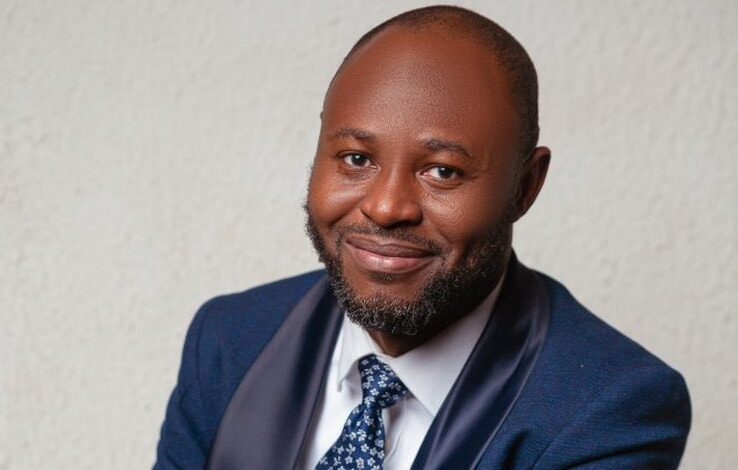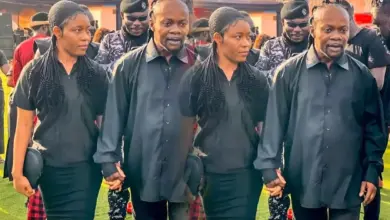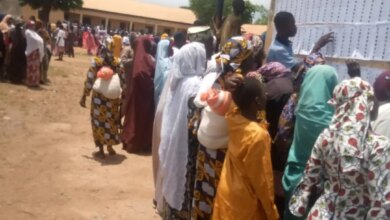Latif Abubakar: The cultural diplomat using Ghanaian theatre to build bridges across nations


Ghanaian playwright and cultural innovator Latif Abubakar is redefining diplomacy through the stage.
From Don’t Dress for Christmas to Sim Majorley, his productions weave Ghanaian and global stories into powerful performances that foster unity, dialogue, and national pride. Through theatre, Abubakar proves that when culture speaks — nations truly listen.
“In the end we will conserve only what we love. We will love only what we understand, and we will understand only what we are taught.” — Yo-Yo Ma
This quote emphasizes the need to learn and understand other cultures in order to preserve our shared world heritage. It underscores the essence of soft power, where countries exchange ideas, information, art, language, and other cultural expressions to foster mutual understanding, often bypassing formal political or governmental channels.
Over the years, Ghana has made remarkable strides in this area through events such as Indiafest Ghana (a celebration of Indian culture), Ghana Yosakai Japan Festival (acelebration of the Japanese culture), and Korea Week(aimed at strengthening friendly cultural relations between Korea and Ghana). In light of this growth, one area that has proven instrumental in promoting cultural diplomacy but has received little attention is Theatre. In the light of this cultural exchange stands one remarkable figure championing Ghana’s image through theatrical diplomacy—Latif Abubakar.
Who is Latif Abubakar?
Latif Abubakar is a Ghanaian playwright, certified project management consultant, cultural diplomat, and the Executive Director of Globe Productions. He is known for his innovative contributions to Ghanaian theatre, including being the first playwright in Ghana to live-stream a stage play during the COVID-19 pandemic. Some of his notable works include Sampson and Delilah, Thank God for Idiots, Romantic Nonsense, and Men Don Die and many more. He is also the founder of The African Festival, regarded as Africa’s largest cultural night, which promotes Pan-African tourism. Abubakar has received numerous awards for his creativity and impact in the arts, culture, and entertainment sectors.
Theatre as a Tool of Diplomacy
Theatre mirrors life—it depicts real events before a live audience and reflects a people’s way of life and culture. Aside its ability to entertain, plays written to promote national values, identity, and beliefs, helping audiences understand and appreciate a nation’s culture. For diplomats and cultural observers, theatre often serves as an informal window into a nation’s psyche. Though not a political diplomat, Latif Abubakar uses theatre as a potent instrument of cultural diplomacy. For the purpose of bilateral cultural discourse, this article focuses primarily on his plays that involve collaborations between Ghana and other nations, while briefly noting a few of his local works
His Local Plays
Abubakar’s play Men Don Die is a road safety campaign drama that reflects how issues of road safety are often neglected in Ghana, contributing to over 2,000 deaths annually. In Ghana Must Go, he explores the cultural tensions between Ghana and Nigeria through the story of a Ghanaian man and a Nigerian woman whose love is tested by identity clashes and social prejudice. In addition, The Second Coming of Nkrumah revisits the era of Ghana’s first president to question the nation’s financial independence nearly 70 years after independence highlighting the country’s overreliance on foreign loans and aid. In Saints and Sinners, Abubakar addresses the menace of illegal mining (‘galamsey’) and its destructive impact on the environment. These plays carry messages that reflect Ghana’s culture and global concerns and informs the diplomats on keen areas to act on.
Bilateral Plays and Global Reach
Latif Abubakar’s Don’t Dress for Christmas is a Ghanaian adaptation of French playwright Marc Camoletti’s classic farce Don’t Dress for Dinner. It was staged on December 23, 2014, at the National Theatre, Ghana. The play explores themes of marital deception and mistaken identities among affluent couples. In Abubakar’s version, set within the Ghanaian socio-cultural context, he shifts the genre from romantic comedy to social critique, centering on Sedemand Akoto, a married couple living double lives of deceit. Sedem plans to visit her mother, giving her husband Akotothe chance to invite his mistress and his best friend, Boateng, over—unaware that Boateng is also Sedem’ssecret lover. A clever waitress, bribed to support every lie, deepens the confusion. When Sedem cancels her trip, chaos ensues as all secrets unravel, exposing a tangled web of lies, infidelity, and desire. Through the use of Ghanaian English, Pidgin, and local expressions, Abubakar makes the play accessible and relatable to Ghanaian audiences, while also highlighting the shared moral decadence between French and Ghanaian societies.
Again, Latif Abubakar’s stage play Five Hours with Mariois a Ghanaian adaptation of Spanish novelist Miguel Delibes’ Cinco Horas con Mario. In his version, Abubakartransposes the story into a contemporary Ghanaian setting. The play follows a woman who spends the night beside her late husband’s coffin, speaking to him for five hours—a scene that subtly reflects Ghanaians’ deep reverence for the dead. Through the widow’s monologue, she reveals the conflicts, regrets, and hypocrisies within their marriage, exposing societal pressures, gender roles, and personal flaws. Abubakar localizes the story with Ghanaian humourand cultural nuances, turning it into a poignant reflection on love, morality, and self-deception.
In addition, his play titled Life is a Dream which is an adaptation of the Spanish author Pedro Calderón de la Barca’s classic, was localized in Gonja land, Ghana. It was staged at the Accra International Conference Centre in collaboration with the Embassy of Spain on May 27–28, 2023. The story of a young man who goes through life struggling with personal failures, regrets, and unfulfilled ambitions. Through a series of events such as partly real, partly imagined, he learns that life itself is transient, and that dreams, when pursued with purpose and resilience, can define one’s destiny. The production highlights shared cultural themes between Ghana and Spain, such as fate, morality, power, vengeance, and honor.
Similarly, His play Don Quijote Africa is a Ghanaian adaptation of Miguel de Cervantes’ Don Quixotealso tells the story of a Ghanaian man inspired by ideals of heroism and justice who sets out to “change the world.” Accompanied by his loyal friend Sancho Panza, he embarks on misadventures that expose the tension between dreams and reality. Staged in December 2024, the play captured the clash between idealism and the harshness of modern Ghanaian life, including political hypocrisy, moral decay, and youth unemployment.
Moving beyond Spain, Abubakar’s Italian adaptation of Luigi Pirandello’s La Patente (The License) explores the plight of Rosario Chiarchiaro, a father ostracized by society and wrongfully dismissed from his job. His struggle for justice resonates with themes of discrimination and social alienation that are equally familiar in the Ghanaian context.
Most recently, his play Sim Majorley which is a Ghanaian adaptation of Korea’s Simcheongjeon (The Story of SimCheong), recounts the moving story of a devoted daughter who sacrifices herself to restore her father’s sight. The adaptation celebrates cross-cultural collaboration and underscores universal values of love, duty, and faith, showcasing theatre’s power to bridge nations and traditions.
Through such adaptations of stories from other countries, Latif Abubakar fosters bilateral partnerships and continues to project Ghana’s image beyond borders—not merely as a nation open to diplomacy, but as one actively engaging in cultural diplomacy.
Conclusion
Latif Abubakar’s work transcends entertainment. It is a vehicle of dialogue, education, and diplomacy. Through his artistic vision, he continues to position himself not just as a playwright but as a true cultural diplomat whose stage becomes a meeting point for nations, ideas, and identities. His plays embody the spirit of unity, reminding audiences that culture is the heartbeat of diplomacy. In every performance, Abubakar redefines theatre as more than art; it becomes an act of nation-building and international conversation. As Ghana continues to assert itself on the global cultural stage, his productions remind us that, “When culture speaks, nations listen”
About the Author
Raphael Junior Mensah is a literature and drama facilitator at Kaneshie Presbyterian Preparatory and Junior High School, Accra. He is a theatre critic, an author, and a researcher with a passion for African theatre, diplomacy, and the role of performance in social transformation. He writes on arts, culture, and education for various Ghanaian platforms.
DISCLAIMER: The Views, Comments, Opinions, Contributions and Statements made by Readers and Contributors on this platform do not necessarily represent the views or policy of Multimedia Group Limited.
DISCLAIMER: The Views, Comments, Opinions, Contributions and Statements made by Readers and Contributors on this platform do not necessarily represent the views or policy of Multimedia Group Limited.
Source link





